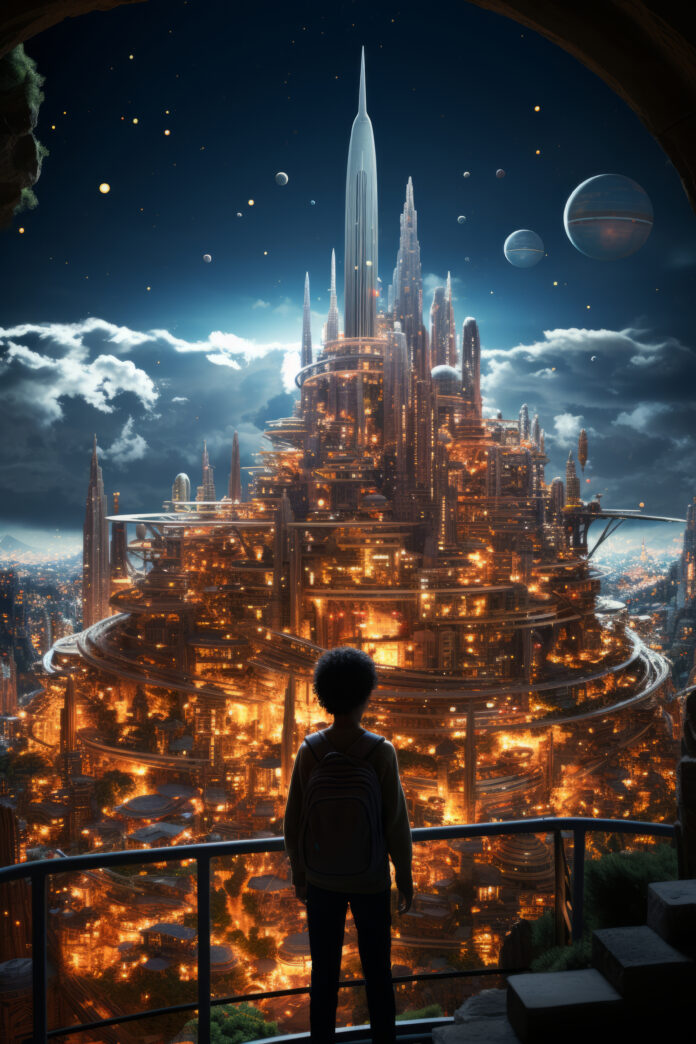Newtopy is an innovative idea reflecting the perpetual quest of human beings for a more suitable form of existence. The word itself combines “new” and “utopia,” indicating a new approach towards an ideal society. Different from traditional utopian visions which are often deemed unachievable and rigid, newtopy offers an outlook that is more flexible, pragmatic, and contemporary, a world that welcomes progress, coexistence, and equilibrium with humanity and nature.
From the Idea of Newtopy’s Origin
We have always utopianized perfect societies devoid of conflict, hardship, or inequality. Philosophers, writers and visionaries have described these imagined worlds, like The Republic of Plato or The Utopia of Thomas More. Yet, these fantasies were often ridiculed for being disconnected from human reality.
A new angle is offered by newtopy, for instead of pursuing a perfect society, focuses on adaptability, innovation and sustainability. This outlook proposes that a new utopia is not stasis, but rather an ongoing process of improvement, which is the essence of civilized coexistence.
Newtopy as a Reflection of Modern Values
As we venture deeper into the 21st century, society grapples with an unprecedented plethora of challenges: climate change, social inequality, digital disruption, and rapid urbanization. Newtopy seeks to address these challenges because it modern values such as environmental sensitivity, diversity, and the ethics of technology.
Any society inspired by newtopy would champion inclusivity by ensuring that the culture, gender, and socioeconomic voices are respected and valued. Moreover, it would appreciate the promotion of balance and well-being in addition to innovation and progress. This vision is not as much about rigid ideals as it is about flexible frameworks that communities need to thrive.
The Role of Newtopy Technology
Technology is both a challenge and a solution in shaping the future. In the context of newtopy, technology is not an uncontrollable force, but rather a means of supporting human and environmental well-being.
Smart cities, digital platforms, and renewable-enery systems can be built with ethics and equity in mind. Responsible use of technology can enhance social services, as in the case of artificial intelligence and education or healthcare. Rather than perpetuating isolation or inequality, the newtopy vision focuses on expanding the social fabric, enriching all participants, and democratizing access.
Environmental Sustainability at the Core of Newtopy
Modern-day utopias cannot overlook the environment. Resource depletion and climate change pose two of the greatest challenges to contemporary society. Newtopy highlights ecological responsibility, in the form of sustainability, as one of the pillars of an ideal society.
Sustainable design, respect for ecosystems, and the prioritization of renewable resources are all central to newtopy. Under such a philosophy, communities would not exploit nature, but instead coexist with the natural world and ensure that future generations inherit a planet that maintains the capacity to support life. Features such as eco-friendly urban design, innovations in green energy, and circular economies would define these newtopy communities.
Social Harmony and Inclusivity Through Newtopy
Newtopy’s human dimension augments technology and ecology, focusing on fairness and inclusivity. Inequality has always presented a challenging boundary to peace and progress. A society based on newtopy philosophy would strive towards narrowing the economic gap, ensuring healthcare access, and ensuring human rights protective systems are in place.
Cultural respect also falls under inclusivity. Newtopy imagines communities that are enriched, rather than divided, through the coexistence of different traditions. The model promotes empathy and constructive dialogue, prioritizing fairness to advance collective prosperity, thereby encouraging cooperation over competition.
Newtopy: A Practical Vision, Not Fantasy
Traditional utopias often fail because they seek perfection, which is impossible to achieve. The philosophy of newtopy rejects this trap. Rather, it proposes attainable incremental progress towards more sustainable, equitable, and humane societies.
This pragmatic newtopy approach provides balance between aspiration and reality which is powerful. It cultivates innovation with responsiblity, systematic practicality, change with a nod to tradition, and ethical growth at the core.
The Global Appeal of Newtopy
One of the strongest aspects of newtopy is its universality. Different cultures may define and approach “ideal living” in unique, diverse paradigms; however, the core principles of fairness, sustainability, and holistic well-being are embedded in humanity at large.
Newtopy may manifest in clean energy and ecological protection for some nations. Other nations may interpret it as equitable access to education or healthcare. This ensures newtopy is not a one-size-fits-all model, adapting to diverse social, political, and environmental contexts.
Conclusion: Working Towards a New Vision
Newtopy is less about dreaming and more about gentle collective steps towards a better life. It combines creativity alongside environmental stewardship, inclusivity along with fairness, and balance alongside forward motion; it provides a practical model for building more resilient and humane societies.
This aspect of civilization brings to our attention the fact that utopia need not be a remote and abstract dream. It is within the realm of possibility to shape a balanced and harmonious world through collective action, responsible choices, community initiatives, and mindful stewardship of resources. Thus, newtopy transforms from merely a word into a philosophy that aims for a more illuminating and responsible future.

